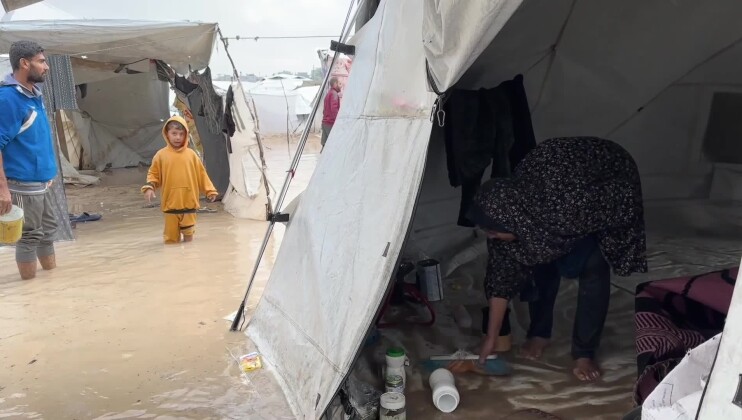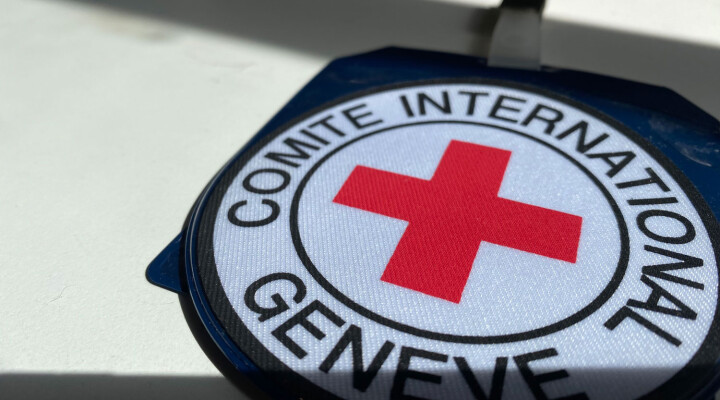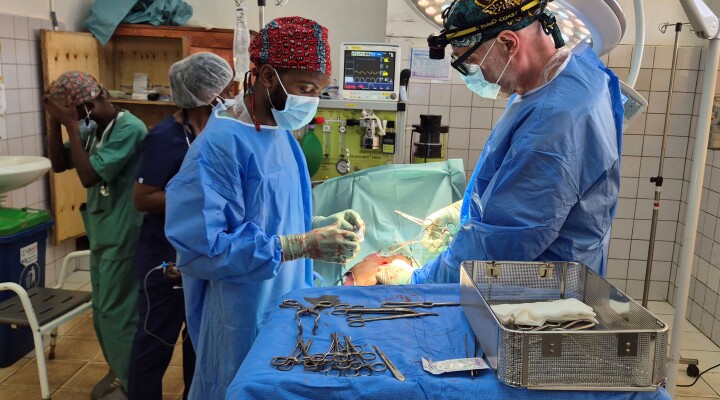World mental health day: families find comfort in gathering to commemorate missing kin
Four years after the armed conflict in Marawi City in Mindanao island, families whose relatives disappeared in the fighting and who remain unaccounted for are still in limbo over their loved ones’ fate. The uncertainty caused by the lack of answers about the fate and whereabouts of their missing relatives makes their distress specific, compared with other conflict victims.
“It never came to a point where I thought of stopping. I will look for him for as long I am breathing. I won’t lose hope,” said 31-year-old Mariam* whose brother went missing two days after the hostilities broke out. “I feel envious of those who know where their deceased loved ones are buried. People like me are torn between hope and despair. We don’t know when the longing will end,” she said.
Mariam and several other families of missing persons (FoMs) from Lanao del Sur and Lanao del Norte provinces recently gathered to commemorate their missing loved ones at Maqbara cemetery in Marawi, where unidentified human remains from the siege were buried. They came up with the idea of visiting the cemetery and writing messages on a blank tarpaulin addressed to their missing relatives. Following COVID-19 health protocols, the International Committee of the Red Cross (ICRC), which has been supporting FoMs since 2017, facilitated the gatherings.
For Mariam, meeting with her fellow families on this significant day is a source of comfort.
“Gatherings like this is an opportunity for us to feel that we are not alone. To some, this also serves as a reminder to resume their search if they stopped. Knowing that there are organizations that help us, like the ICRC and other governmental agencies, gives us hope that we can still find whom we are looking for – whether they’re dead or alive,” she said.
On the same day, other FoMs gathered at a farm in Marawi and a residence in Iligan City. They paid tribute to the disappeared and reminisced good memories they hold of them.
Sittie Jamerah Mohammad, ICRC mental health and psychosocial support (MHPSS) field officer, said that in the Philippines, there were no established mechanisms to commemorate the missing, so, as an alternative, the ICRC organizes activities where these families can openly remember their missing relatives.
“In the absence of burial rites, these activities serve as an opportunity for them to pay tribute to the disappeared—to somehow free themselves of potential guilt that they are forgetting their missing loved ones. In fact, part of the peer-support sessions is building a tangible commemorative project, such as waiting sheds and memorials, where these families can go (to) to honor their missing and offer prayers for them,” she said.
Mariam represents one of thousands of families around the world whose quest for answers continues to this day. When asked what her hopes are in the future – she spoke of what every FoM could hope for – “For my brother to come out alive. If not, at least we can find his remains so my family and I can finally have the closure we long hoped for. For now, our search continues,” she said.
The ICRC, a humanitarian organization that assists victims of armed conflict, has been accompanying families of persons who went missing in the Marawi conflict in their search for answers. Results of the Family Needs Assessment (FNA) that the ICRC conducted in 2019 show that these families’ main priorities are knowing the fate of their missing loved ones, mental health and psychosocial support (MHPSS) and economic assistance. To help address these needs, the ICRC designed the accompaniment program that was launched in June 2020.
The accompaniment program aims to support FoMs by 1) providing answers to their legal and administrative concerns; 2) providing MHPSS through peer-support groups; and 3) giving economic or livelihood support for the most vulnerable FoMs.
*not her real name
For further information, please contact:
Amer Hassan Sanggacala (in Iligan), mobile: +63 917 321 5787
Allison Lopez (in Manila), mobile: +63 908 868 6884
Follow ICRC Philippines on facebook.com/ICRCph/
LOGLIST
Location: Marawi and Iligan cities, Mindanao, Philippines
Date of filming: 30 August 2021
Length: 10:07
On-screen credit: International Committee of the Red Cross (ICRC)
Copyright: ICRC
*not their real names
*Norma, 37, a mother whose 16-year-old son went missing, from Lanao del Norte
00:01-00:15 – What I want is to know whether he’s still alive or dead. Right now, it is difficult for me to move on because it is uncertain [in my mind] whether he is still alive or dead.
Akong gusto mahibaw an sir, kanang makahibalo ko kung buhi pa ba sya or patay na ba. Kay sa pagka karon murag mag kuli jud kog move on nga wala pa nako na sulod sakong huna huna kung buhi pa ba kaha siya or patay na ba.
00:16-00:20 - It pains me a lot. I was able to move on from my partner who died but never from my child who went missing.
Sakit kaayo sa tanan. Naka move-on ko sakong partner nga namatay pero di ko ka move-on sakong anak jud, sir, nga Nawala.
00:21-00:28 – BRoll of Norma
00:28-00:31 – Close-up of Norma
00:32-00:40 – ICRC vehicles entering Marawi
00:40-00:45 – BRoll of daily life in Marawi: busy market in Bito village
00:46-00:53 – ICRC vehicle entering Maqbara burial site
00:54-01:01 – ICRC vehicle parking
01:02-01:06 – Wide shot of FoMs preparing for the Maqbara visit
01:07-01:11 – FoMs talking to each other
01:12-01:16 – ICRC staff unloading disinfectants
01:17-01:20 – ICRC delegate Elvis Dzanic speaking with FoMs
01:21-01:25 – ICRC MHPSS field officer interacting with FoMs
01:26-01:29 – Close-up of FoMs
01:30-01:36 – FoMs smiling and laughing
01:36-01:40 – ICRC staff assisting an FoM while writing on the tarpaulin
01:41-01:45 – Close-up of FoM writing on the tarpaulin
01:46-01:50 – FoM writing on the tarpaulin
01:51-01:55 – Medium close-up of FoM writing on the tarpaulin
01:56-01:59 – FoM
02:00-02:03 – ICRC MHPSS field officer speaking with FoMs
02:04-02:05 – FoMs talking to each other
02:06-02:10 – FoMs bringing bouquets of flower
02:11-02:15 - Close-up of grave marker
02:16-02:20 – Close-up of an FoM’s message written on the tarpaulin
02:21-02:24 – Close-up of FoM writing on the tarpaulin
02:25-02:30 – Close-up of FoM writing on the tarpaulin
02:31-02:36 – Close-up of FoM writing on the tarpaulin
02:37-02:40 - FoMs talking to each other
02:41-02:43 – FoM
02:44-02:46 – ICRC MHPSS FO
02:47-02:50 – ICRC staff at Maqbara
02:51-02:57 – ICRC staff approaching FoMs
02:57-03:00 – ICRC delegate Elvis Dzanic speaking with FoMs
03:01-03:04 – FoMs standing by some graves
03:05-03:08 – Nanay Rosa* walking
03:09-03:12 – FoM bringing flowers
03:13 – 03:17 – Close-up of flowers placed on top of Maqbara signage
*Janisah, 31, whose younger brother went missing, from Lanao del Sur
03:17-03:29 – It was very depressing during the time. First and foremost, prayers from Allah asking for his guidance and help that wherever my brother was, he could still be found.
Napakadepressing yung time na yun. Unang una, Du’a from Allah, asking for his guidance and help na sana wherever my brother man, sana mahanap na siya.
03:30-03:44 – Seeing your family feeling so down [in severe agony], so you have to be their rock. Even when it was too painful, I had to remain strong.
Makikita mo yung family mo na lahat sila nadadown so ikaw lang yung dapat na maglakas loob para sa kanila na hindi lahat sila madown. So kahit ang sakit sakit na, kailangan mo pang maging matatag.
03:45-04:24 – I have so many things to remember about him, but what stands out to me was when I was still a college student. During then, some classes would dismiss at 5PM or 6PM. As a Muslimah, it was sensitive for me to travel by myself, but he was always there. Even when he was exhausted from working, he’d still be there to fetch me. This is what I will always remember him for – that though I am married now, I still hold fond memories of him as his loving sister.
So much things to remember about him but the best was when I was in college, and siyempre pag college ka dumarating yung time na 5 PM o 6 PM saka matatapos yung klase diba. Bilang Muslim, sensitive sa daan pag ikaw lang yung naglalakbay so andyan siya palagi. Tapos kahit pagod na pagod siya sa trabaho, nandon pa rin siya para sunduin ako. Tapos nafefeel ko talaga yung love niya sakin as a sister. At yun yung hindi matanggal tanggal sa isip ko hanggang ngayon. Though may asawa na ako ngayon, pero still nandoon pa rin yung memories niya sa’kin as a loving sister in his part.
04:25-04:42 – It never came to a point that I thought of stopping [the search] because in my part, I have to look for him wherever he is. I’m still going to look for him for as long as I am breathing. I never lost hope that he’d be found so I never stopped.
It never came to the point that I have to stop because in my part I have to look for him wherever he is. Yung sa feeling ko na until nandito pa yung breathing ko, I’m still going to look for him. Never ako nawalan ng pag-asa na mahanap siya kaya hindi talaga ako tumigil.
04:43-05:08 – But for me, while there is life, there is hope. We shouldn’t lose hope. We have to remain patient for all the hardship that we face because what life is giving us are mere trials – that in the end, there will be ease and resolve. If in the end we still don’t find them, at least we tried our very best.
Pero para sa’kin while there is life, there is hope. Hindi lang dapat na mawala sa’tin ang katatagan ng loob at saka pag-asa. We have to remain patient from all the hardship we face because what life is giving is all trials na sa ending din ay kaginhawaan. Hindi man natin sila mahanap, at least we tried our very best.
05:09-05:37 – Events like this serve as a kind of alarm to those who may have stopped their search. This is a wake-up call because they’ll realize that “Ah, we’re not the only ones who are looking for our missing relatives”. But for me, this kind of gathering is a great opportunity as it gives us 100% hope that we’ll find those we are looking for.
Pero yung mga ganitong event, ito yung magsisilbing alarm sa kanila na kung nakalimutan man nila yung paghahanap nila, mapukaw yung mga isipan nila kasi nakita nila na ‘ah hindi lang pala ako yung naghahanap ng nawawalang pamilya ko’ pero para sa’kin it’s a very big opportunity na may mga ganitong pag iipun-ipon kasi nakakapagbigay talaga ng 100% hope na mahahanap natin yung hinahanap natin.
05:37-05:57 – Since we’re at the Maqbara where we see graveyards – it gives us the feeling that “lucky are those who know where their deceased loved ones are buried while people like me do not.” In between happiness and sadness – you don’t know which or how to feel – and you also don’t know until when this feeling will last.
Alam nila yung kumbaga siyempre nasa Maqbara tayo eh so yung graveyards yung makikita natin diyan so yung feeling na buti pa yung iba alam nila kung saan nakalibing yung nawawala nila samantalang ako hindi ko alam. Between happiness and sadness yung mafefeel mo, na hindi mo alam kung kailan magwawakas.
05:58-06:12 - Always, I hope that my brother will come back home. If he didn’t, I wish he’s in the heaven. So much more, I want to attend more IDD (International Day of the Disappeared) anniversary in the next next many years.
06:13-06:20 - I am grateful for having this 11th IDD (International Day of the Disappeared) anniversary since we reminisce our beloved one in our life.
Elvis Dzanic, ICRC delegate for families of missing persons
06:21-06:24 - We are working in 3 ways currently.
06:25-06:57 - We have developed a network of the families across Lanao del Norte and Lanao del Sur through our accompaniment program activities. Last year, due to the pandemic and restrictions, we were not able to do any activity with the families. This year, they started coming forward and asking if they’re going to be able to do commemoration for the missing persons. Respecting all the restrictions from the LGU (local government unit) and all duty of care and social distancing, we managed to organize this event which is a commemoration event.
06:58-07:14 - The idea came from the families themselves. They asked to come here to the Maqbara – and visit the cemetery, the burial location where the Marawi victims were buried and also, they came up with the idea of the tarpaulin where they wanted to write messages for the commemoration.
07:15-07:25 - And also the other idea behind this day is to raise awareness on the issue of the missing persons within local communities as well as internationally.
07:26-07:38 - Well they feel that they are not left alone. They feel that somebody’s working on their problems and issues and they’re hoping for the closure of their problem.
07:39-08:01 - This is the first time that these families have met together. Usually, we group them in smaller groups within their barangays (villages) and they do MHPSS sessions. This is the first time that they realize that there are other groups like their group around the provinces and they see that this is a much bigger problem than they originally thought.
08:02-08:14 - It is eventually the responsibility of the authorities to e address those needs that’s why the ICRC is supporting them and at the same time we are working with the authorities to increase their capacities so they can take over.
Sittie Jamerah Mohammad, ICRC mental health and psychosocial support field officer
08:14-08:32 – Today, we organized [commemorative activities] in three areas. In Maqbara, at the OISCA farm in Marawi, and here in Iligan City. They met together to remember their missing loved ones.
So today po, nag-organize tayo ng tatlong venue. Yung sa maqbara, yung sa OISCA farm sa Marawi City and ito pong sa Iligan City. Nagkita-kita po sila pala alalahanin yung mga missing persons nila.
08:33-08:50 – It’s important [for these families] to participate in these activities so they’ll be reminded that they are not alone [there are those who share the same fate]. This [IDoD] serves as an awareness which we commemorate annually not only here in the Philippines, but around the world.
Mahalaga po na maka-attend sila ng mga ganitong activities siyempre po para maremember nila na hindi sila nag-iisa. Ito po ay isang awareness kung saan inaalala natin ito every year. Hindi lang po ito sa Pilipinas kundi sa buong mundo – sinecelebrate ito worldwide.
08:51-09:02 – We [ICRC] are helping and supporting local authorities to fill in gaps to better respond to the manifold needs of families of missing persons.
Tinutulungan po natin, sinusuportahan natin ang local authorities para mafill in yung gaps para marespondehan natin yung iba’t-ibang pangangailangan ng mga families of missing.
09:03-09:21 – Here in the Philippines, there are no established mechanisms in doing commemorations. As an alternative, we in the ICRC organize activities [like this] where these families can freely remember their missing loved ones.
Ito kasing IDD dito po sa Pilipinas walang naestablish na mechanisms on how to commemorate. Wala pong ganun. So si ICRC po, ito nag-oorganize tayo ng mga activities kung saan malaya nilang pwedeng alalahanin yung mga nawala nila na mahal nila sa buhay.
09:22-10:07 – In the absence of cultural and burial rites, at least there are activities [like these commemoration activities] where these families are given the opportunity to remember their missing. To give them the notion that they are not forgetting them, and they remember them every year – not only annually but every time they miss them. For example, in our group sessions, we implemented commemorative projects such as waiting sheds or memorial walls where these families can visit and go to anytime – to offer flowers and the like.
In the absence of cultural – yung mga paglilibing and burial rites, at least man lang may mga na-orgnize tayong activities like yung commemoration activities kung saan nagkakaroon sila ng pagkakataon na alalahanin yung mga missing persons nila. Na ibig sabihin hindi nila kinakalimutan at inaalala nila ito bawat taon. Hindi lang bawat taon kundi sa panahon na namimiss nila ito. For example, sa group session, may ginagawa kaming commemoration project gaya ng waiting shed or memorial walls kung saan anytime pwede nilang bisitahin at puntahan para alalahanin ang mga missing nila. Nagbibigay sila ng mga flowers ganyan.



